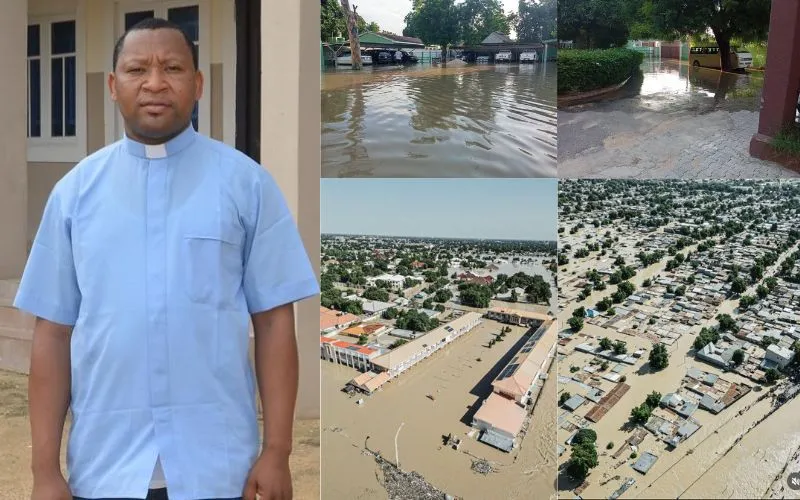Maiduguri, 09 October, 2024 / 9:25 pm (ACI Africa).
Members of the Justice Development and Peace Commission (JDPC) of Nigeria’s Catholic Diocese of Maiduguri are reaching out to victims of recent floods, which devastated communities, destroyed properties, and left many without their livelihoods.
In an interview with ACI Africa, JDPC Director in Maiduguri Diocese, Fr. Fidelis Joseph Bature, highlighted the challenged the flood victims face, including trauma, and the psychosocial help the Commission of the Nigerian Diocese is offering.
“There’s a lot of outcry, fear, and anxiety among parents. Despair is widespread. People are losing hope not just because of the flood, but also because they were just emerging from a difficult period of insecurity. Many were still rebuilding their lives after coming out of insecurity that lasted for more than two decades,” Fr. Bature said during the October 5 interview.
The needs of the people go beyond food, shelter, and hygiene, he noted, and added, “People feel utterly devastated. Homes have been lost, lives and livelihoods shattered. Farms were washed away, businesses were destroyed. There’s general despair everywhere. The already dire economic situation in the country makes it even harder for people to cope.”
The Nigerian Catholic Priest outlined the support towards the flood victims, saying, “From a humanitarian perspective, the Diocese is providing relief assistance. Food has been collected and distributed, and emergency support is ongoing.”





